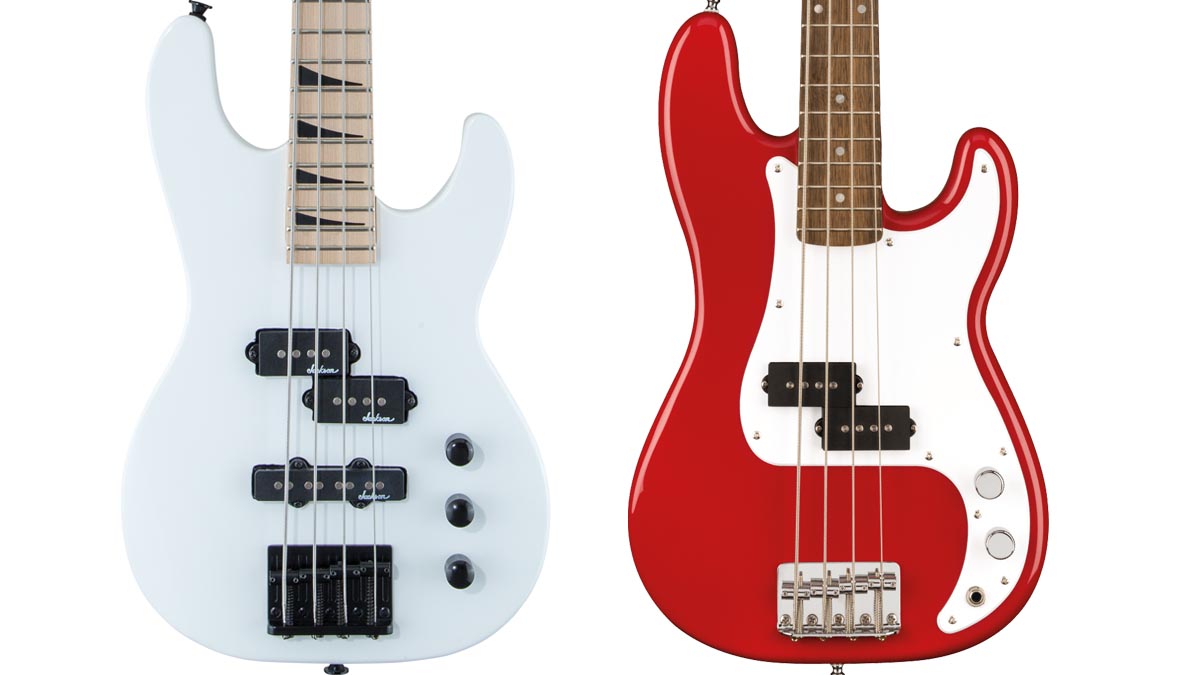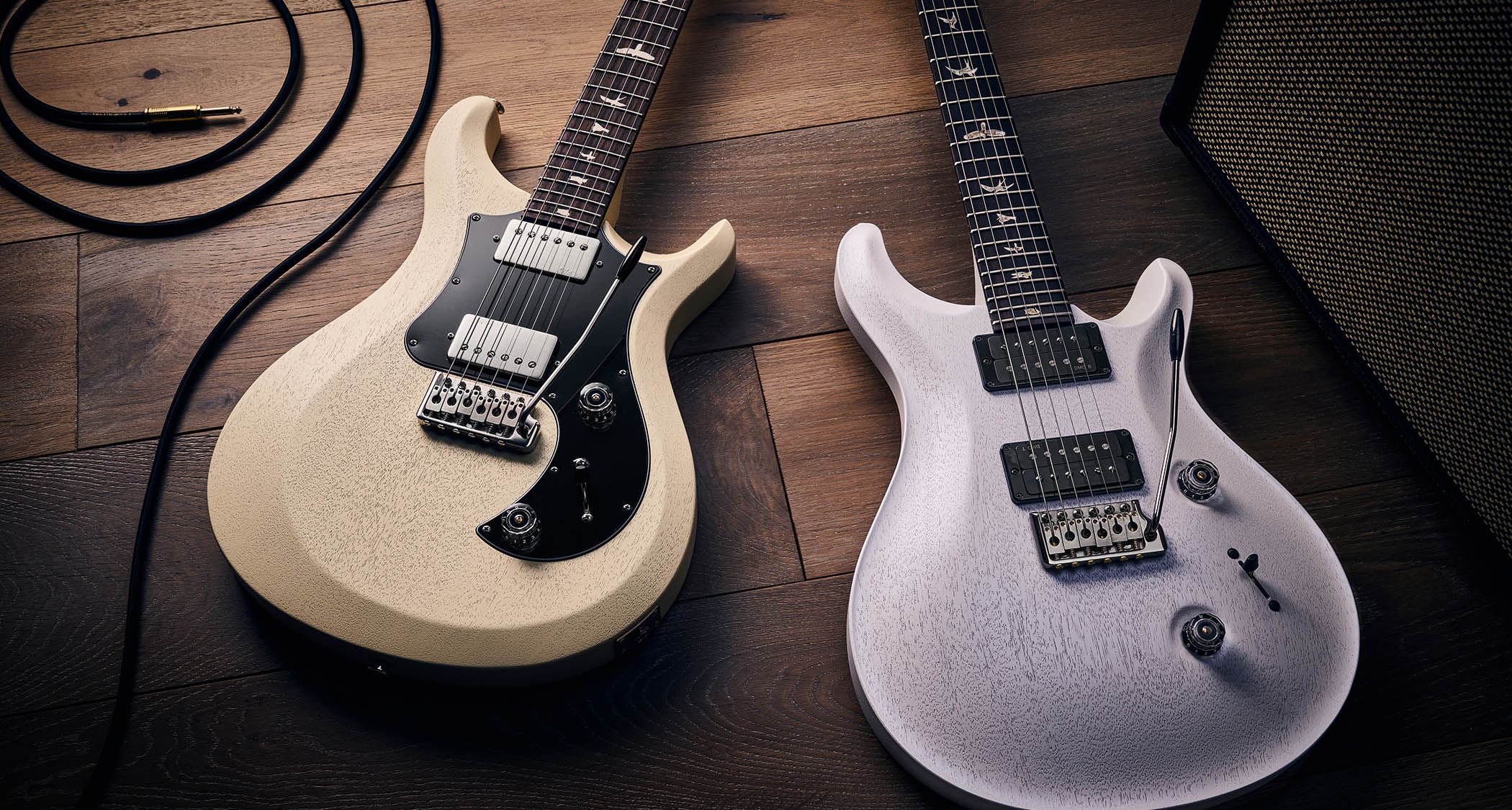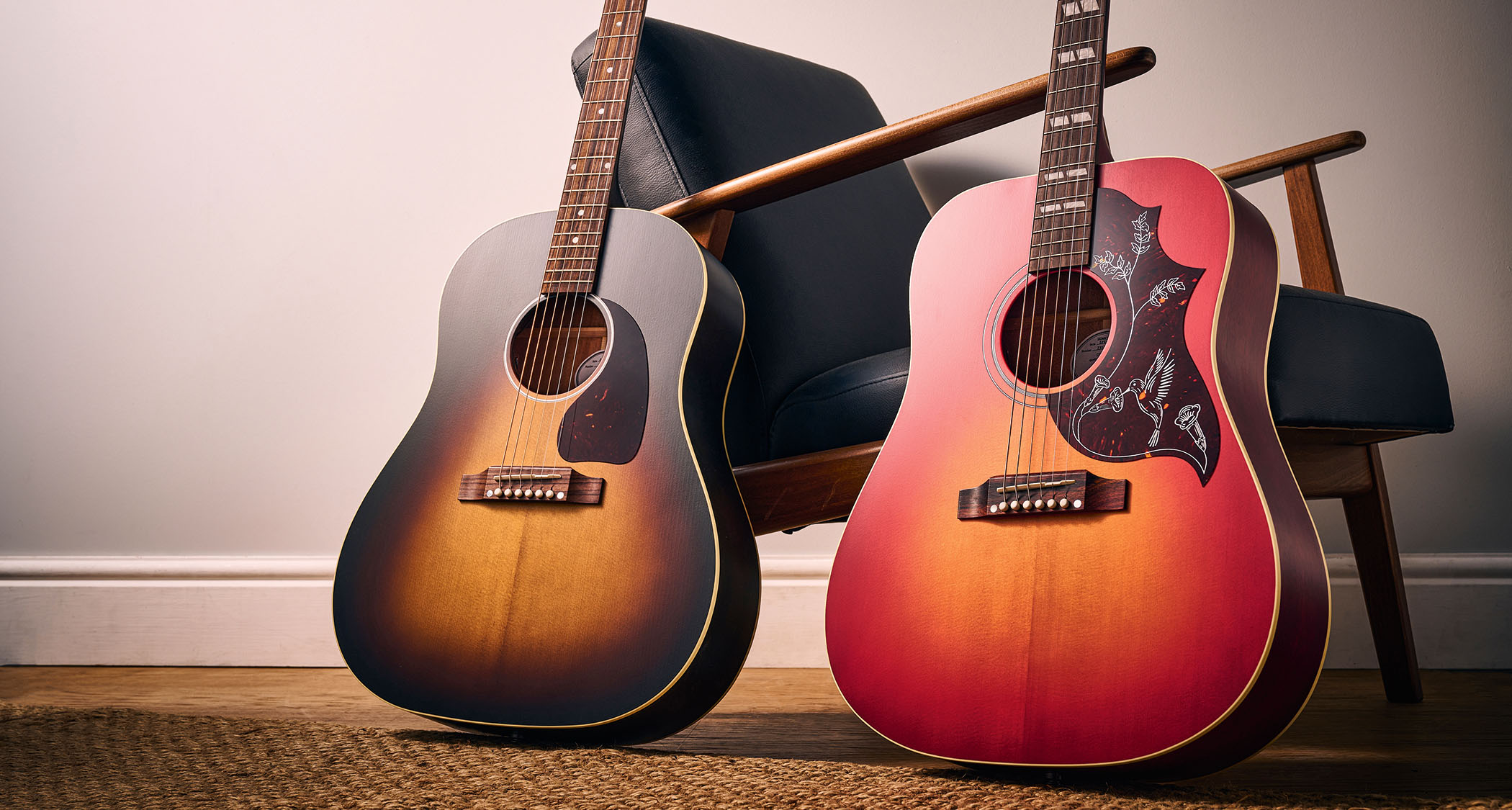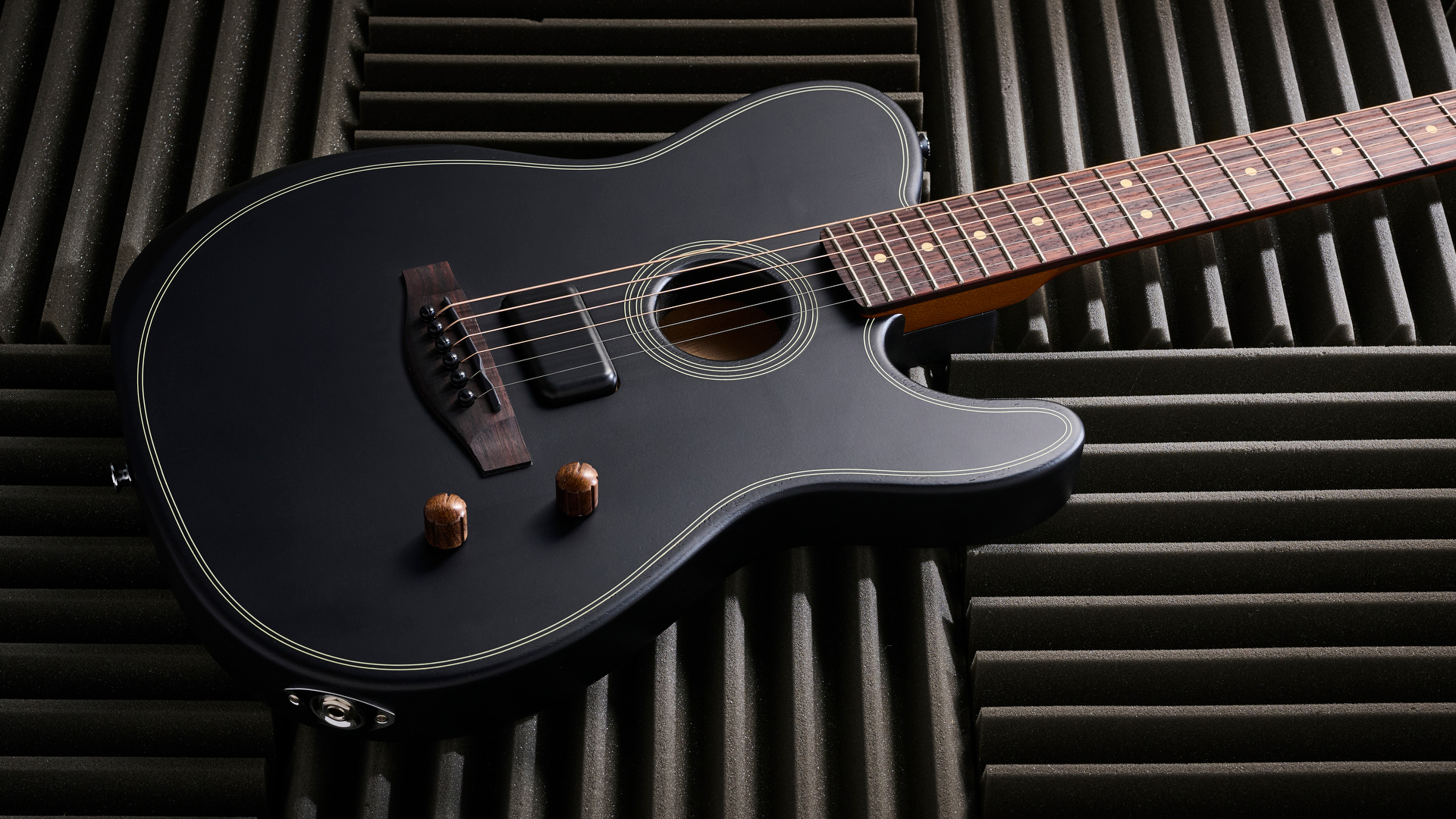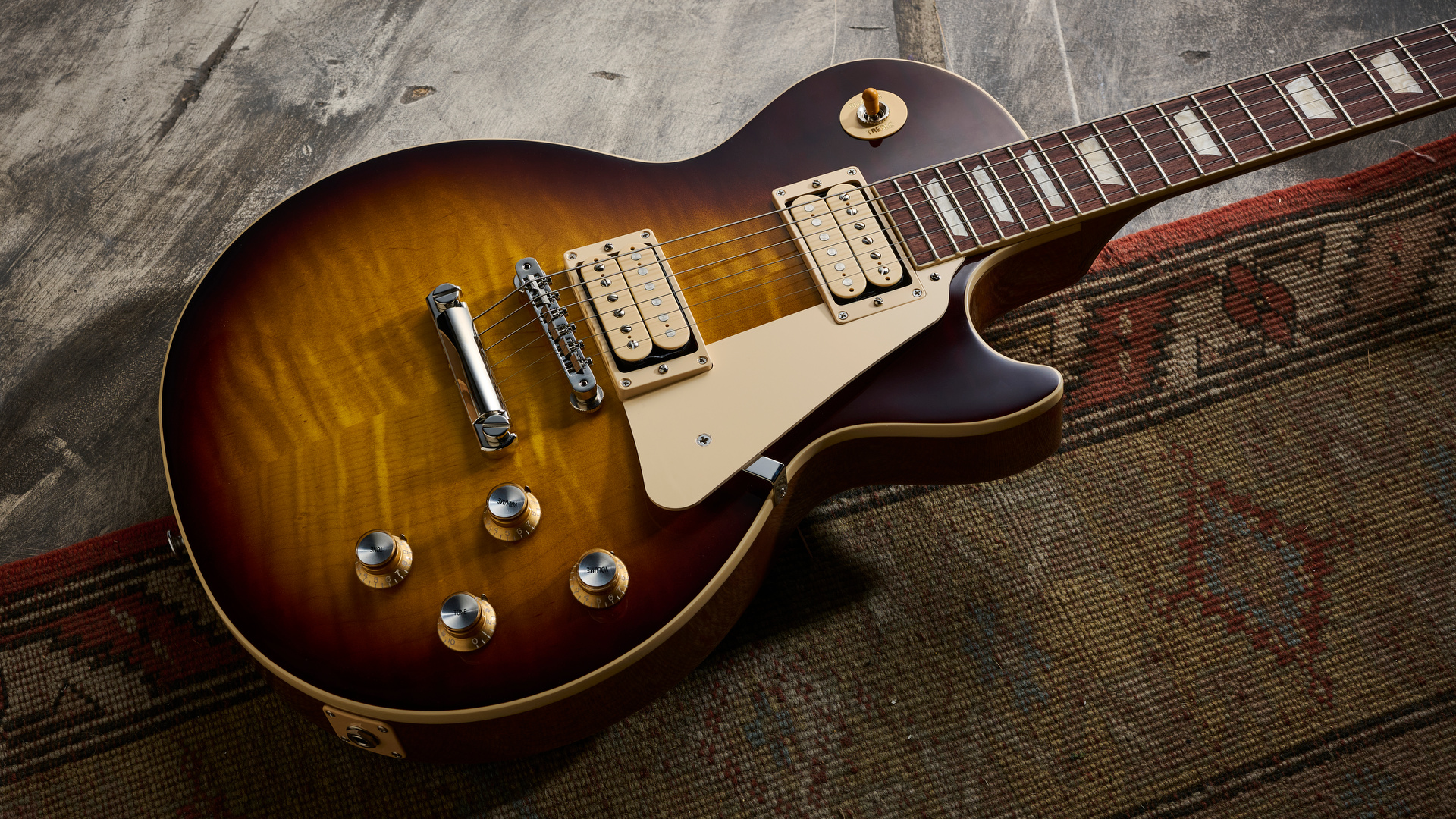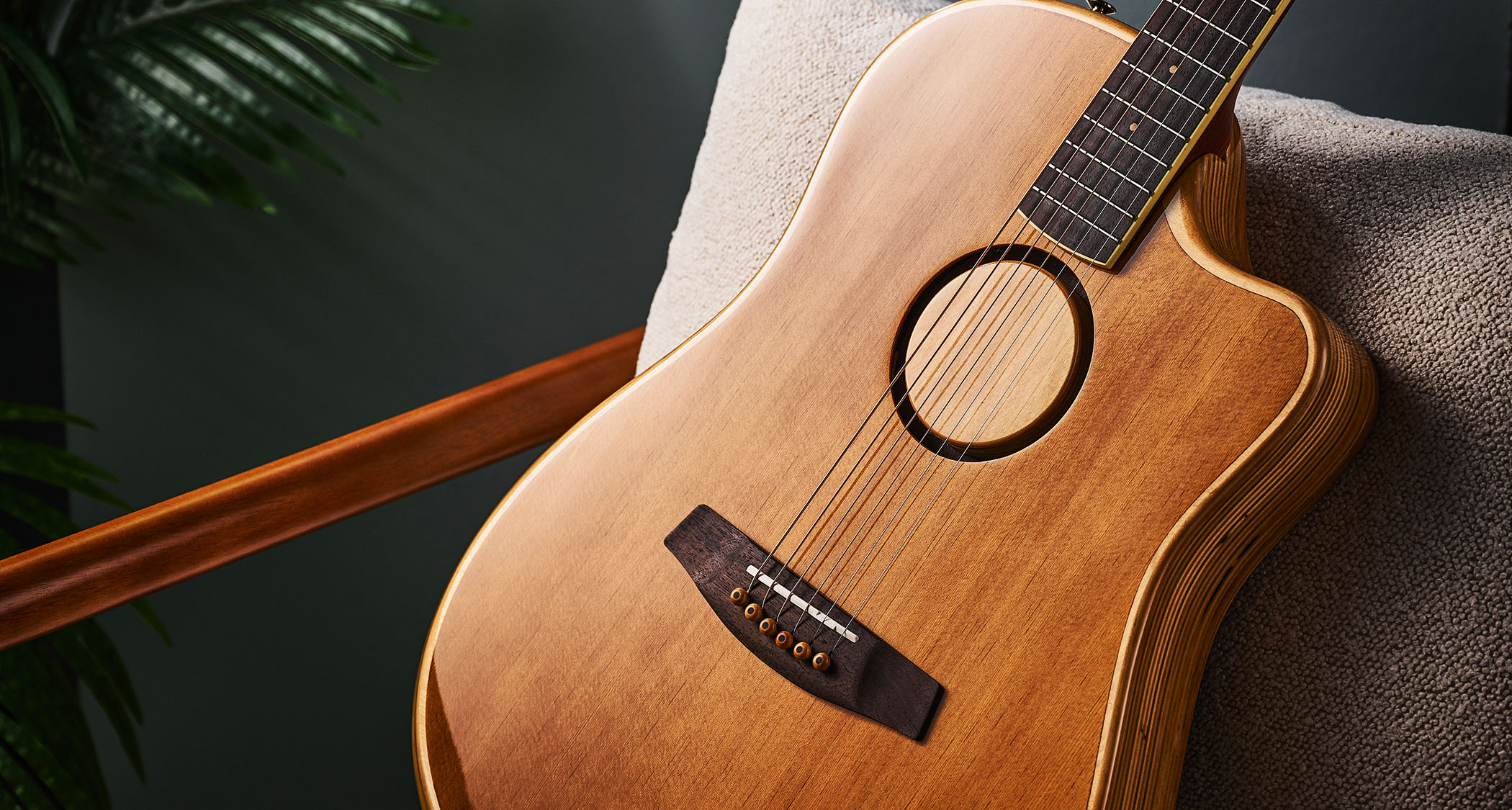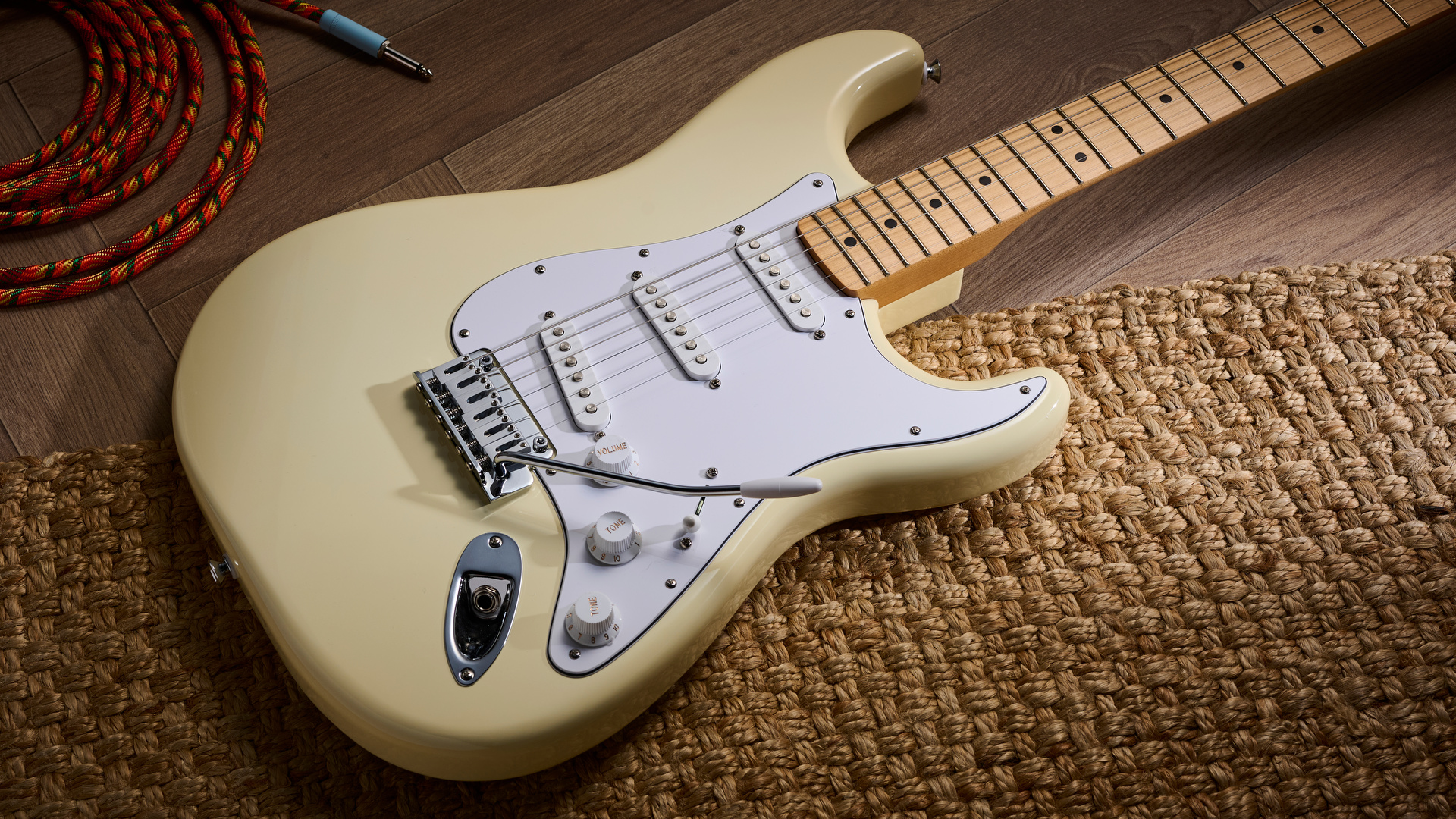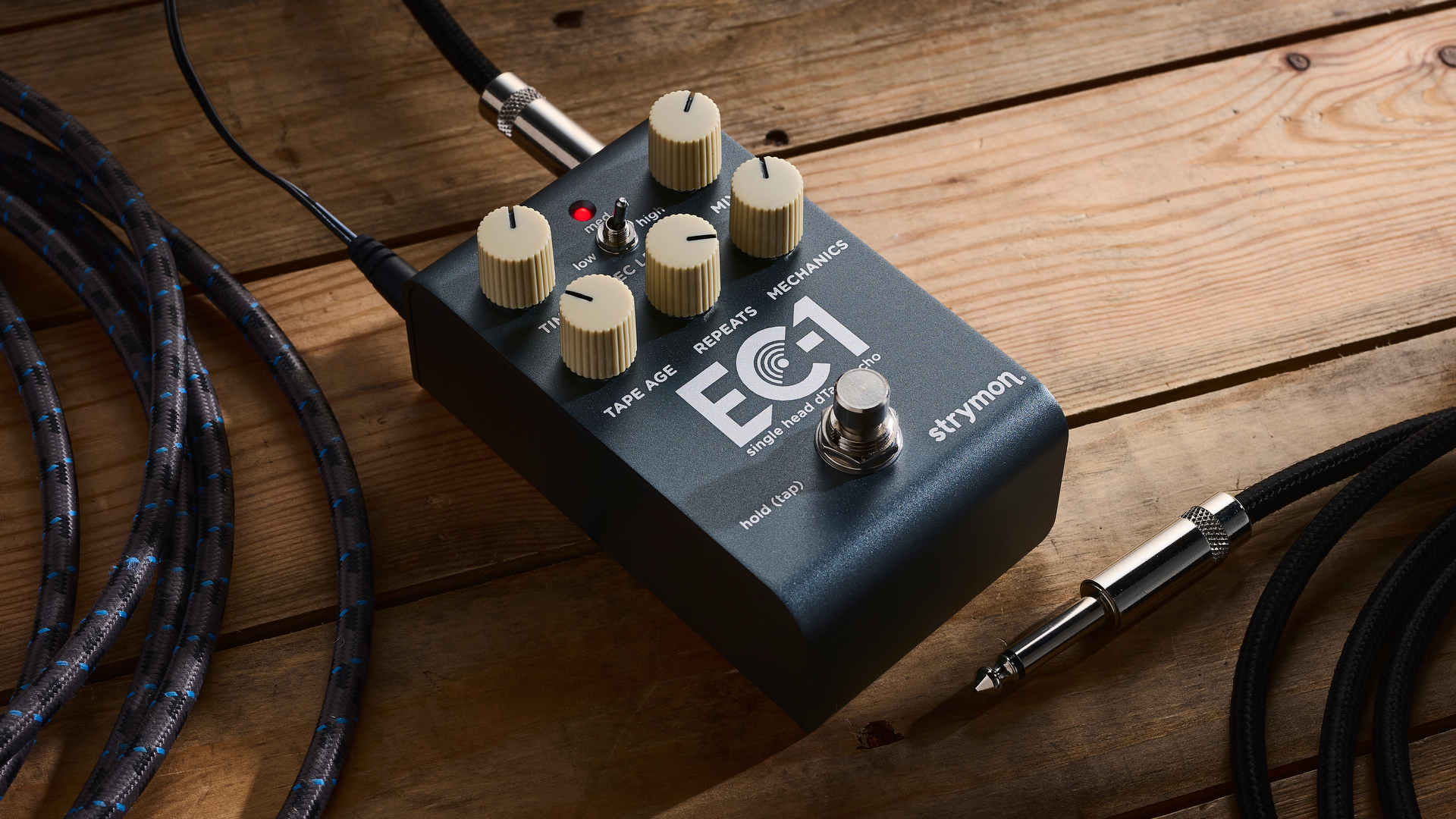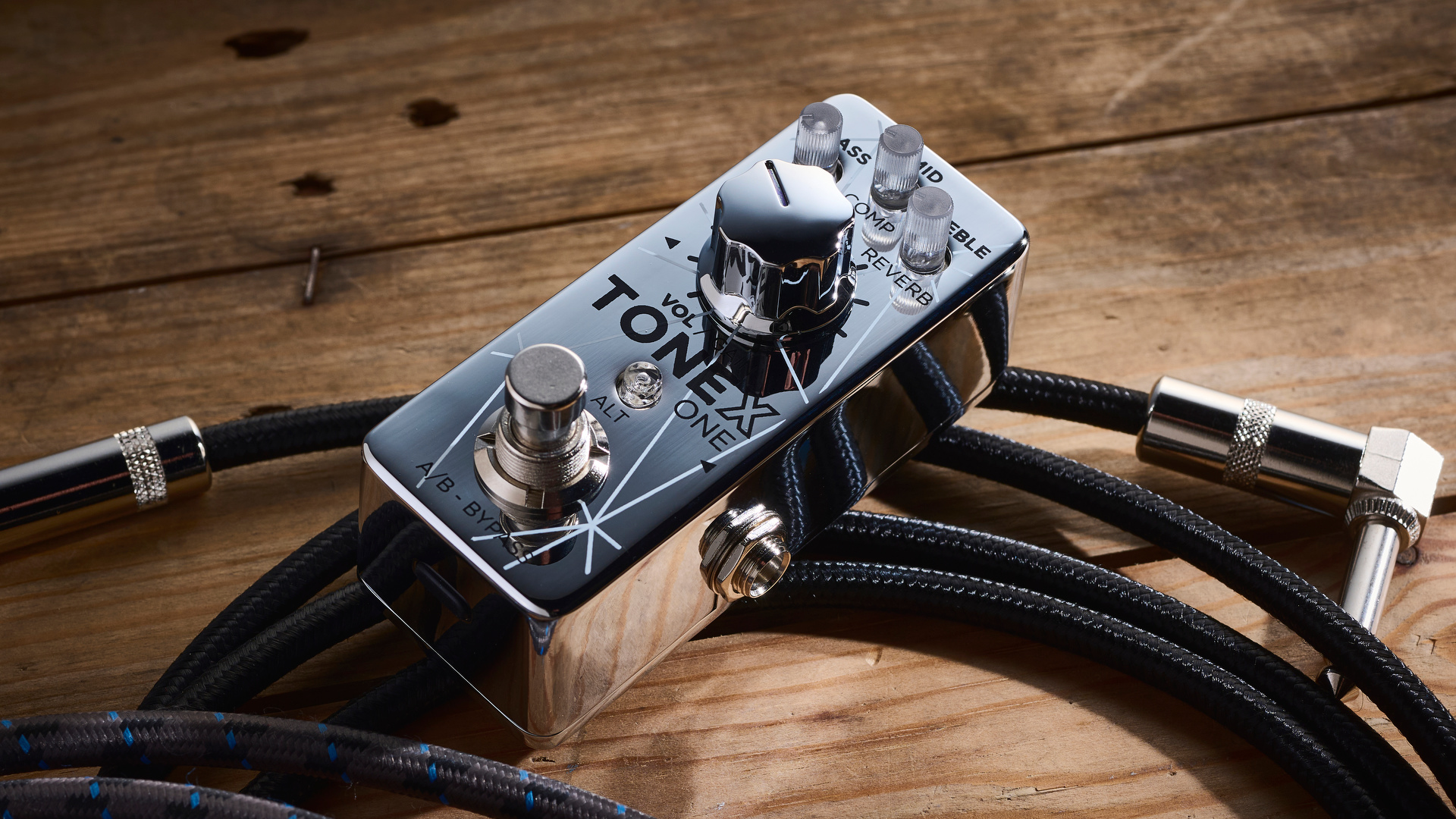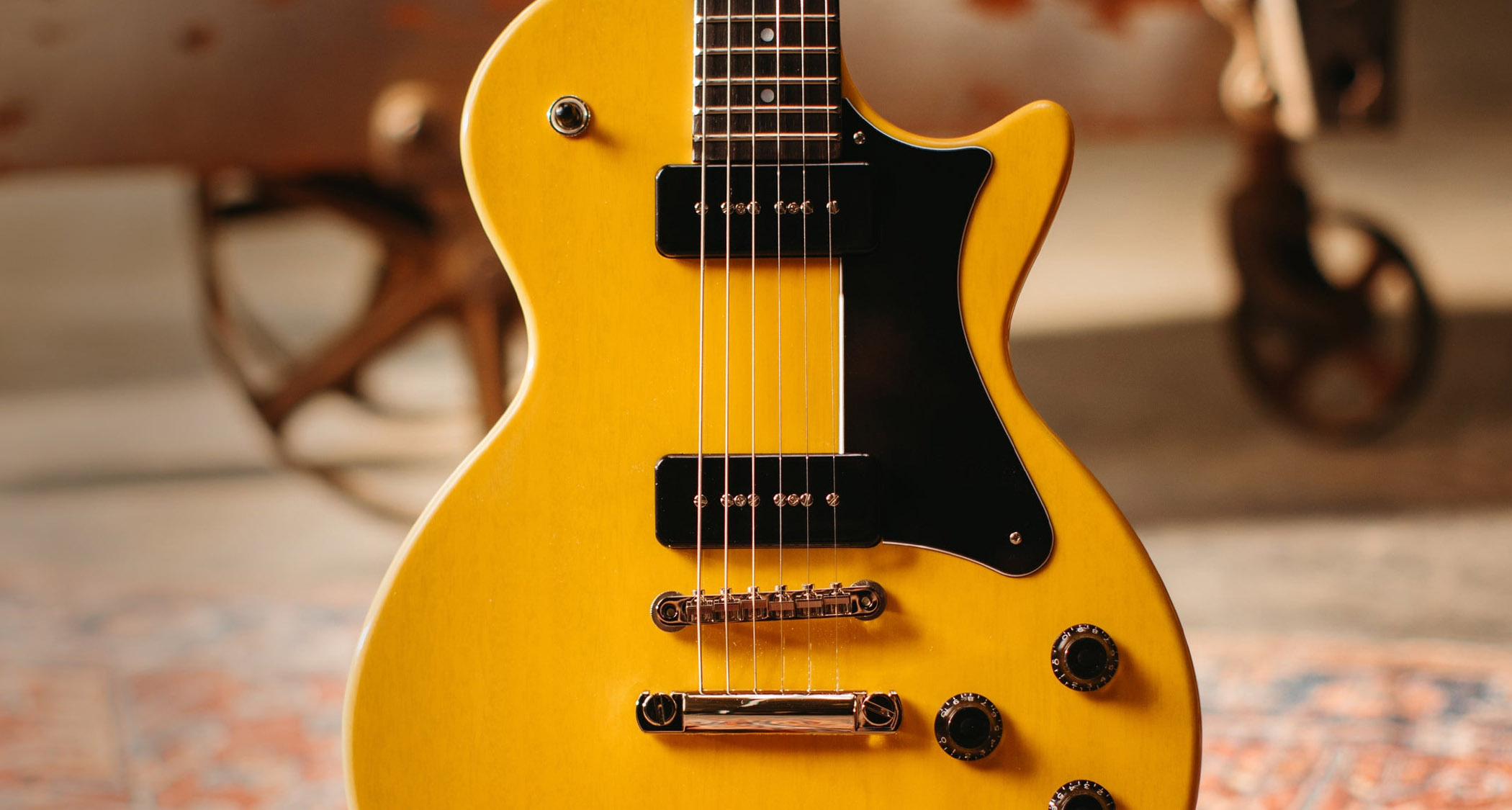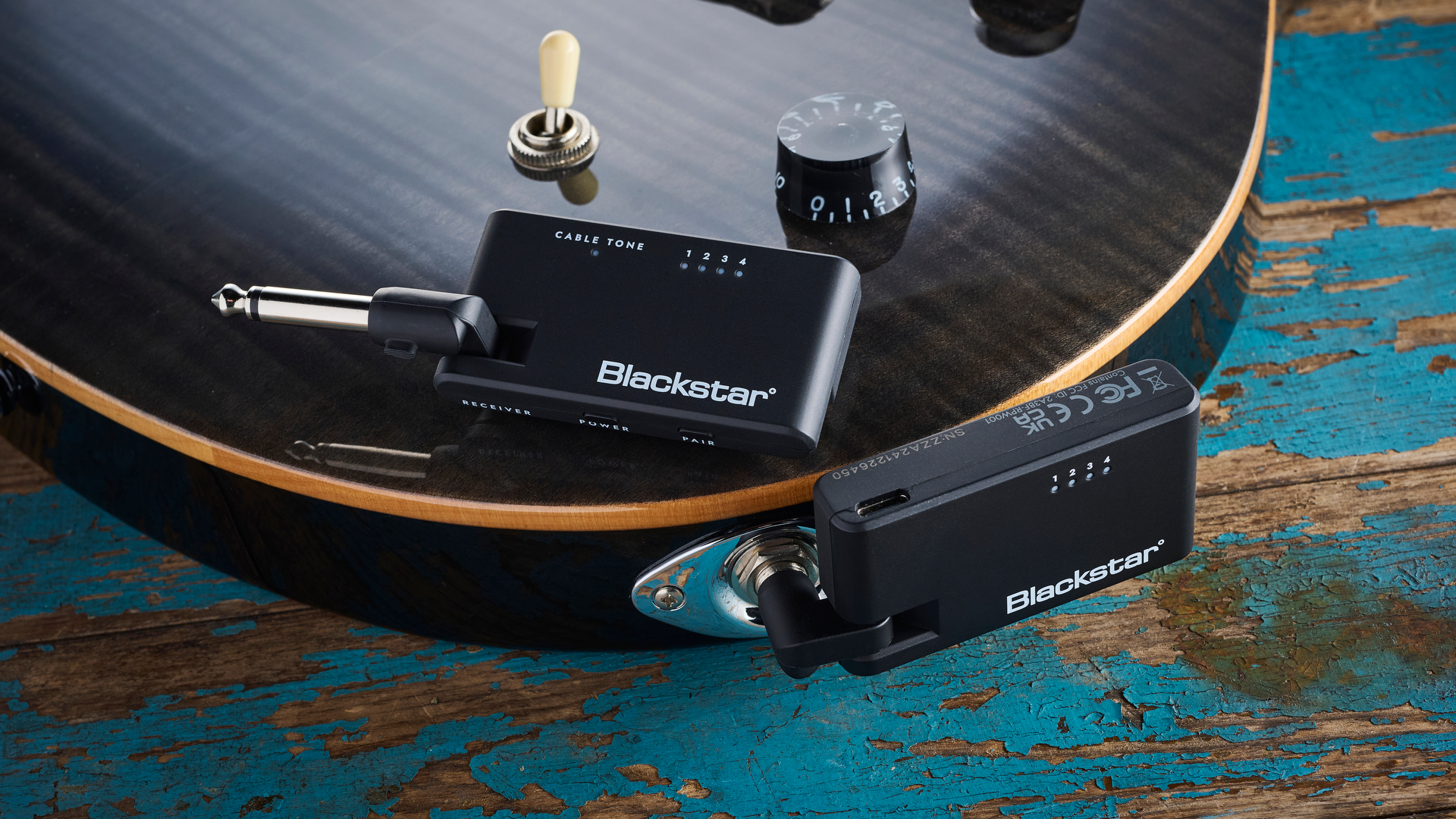Guitar World Verdict
Both of these budget basses offer incredible value. The Squier makes for an excellent entry point for Fender, while Jackson is the best mini-bass we have tested, with playability and tones that belie its size and price.
Pros
- +
Portable and fun basses.
- +
The Jackson is super-playable.
- +
Affordable.
Cons
- -
The Squier's hardware inevitably feels insubstantial.
You can trust Guitar World
Regular readers will know that in recent years we’ve reviewed increasing numbers of short-scale bass guitars, not just because we think they’re cute but because they represent a very real, practical shift in players’ and manufacturers’ thinking.
There’s a large number of emerging young players with small hands; likewise, there is a greater number of female bassists, a welcome – and long overdue – development in our world; there’s a growing concern about the world’s wood stocks; and there seems to be a growing reluctance among airline check-in staff to allow full-sized bass guitars on planes as carry-on luggage.
(I admit this last point is based on anecdotal evidence rather than hard data, so if you happen to own a bass-friendly airline, don’t sue me.)
The next logical step may be for luthiers to invest their time and energy into smaller-bodied bass guitars like the two we have here, sent over for review by Fender.

Light of weight and short of scale – significantly so; these both measure up at a mere 28.6” – both are aimed squarely at the new, young, and/or financially challenged bass player.
In fact, they’re both so budget-priced that we’re immediately suspicious about their ability to make a decent sound or play without serious effort, so let’s plug them in and see. There’s no point in producing an affordable instrument if it sounds terrible, after all.
Build Quality
Aesthetically, there’s no getting away from the fact that the Jackson Minion – a reduced-version of the long-standing Concert model – is a heavy metal bass, thanks to its pointy headstock.
Some bassists love its droopy look, enough in fact to label it with the overused adjective ‘iconic’; others can’t stand it, and why not? The world would be tedious if we all had the same tastes.
Assuming you like the ‘poke your annoying singer in the back’ look of this little bass, you probably won’t be bothered one way or the other by the serviceable but unexciting materials from which it’s made.

The body is poplar, and the bolt-on neck is the expected maple, although it does boast graphite reinforcement rods, which is impressive at this price point. The fingerboard is amaranth, which the internets tell me is a South American wood also known as purpleheart, and which feels perfectly solid beneath the fingers.
We have 22 frets, P and J pickups – crammed rather close together, given the small body – and the expected volumes and tone. Everything moves as it should, from the tuners to the control pots, with no sense of cheapness whatsoever.
How they’ve pulled this off at this price, I have no idea. You can’t quite say the same about the Squier Mini Precision, although it’s around 20 percent cheaper than its headbanging sister, which may have something to do with its slightly insubstantial feel.
It’s a P-Bass in form, from the split single-coil pickup, single volume and tone, and C-shaped neck profile, but there’s a lightweight feel to details such as the machine heads. Mind you, what do you expect at this price? Furthermore, plugged in and played, the Mini P has an unexpected secret weapon...
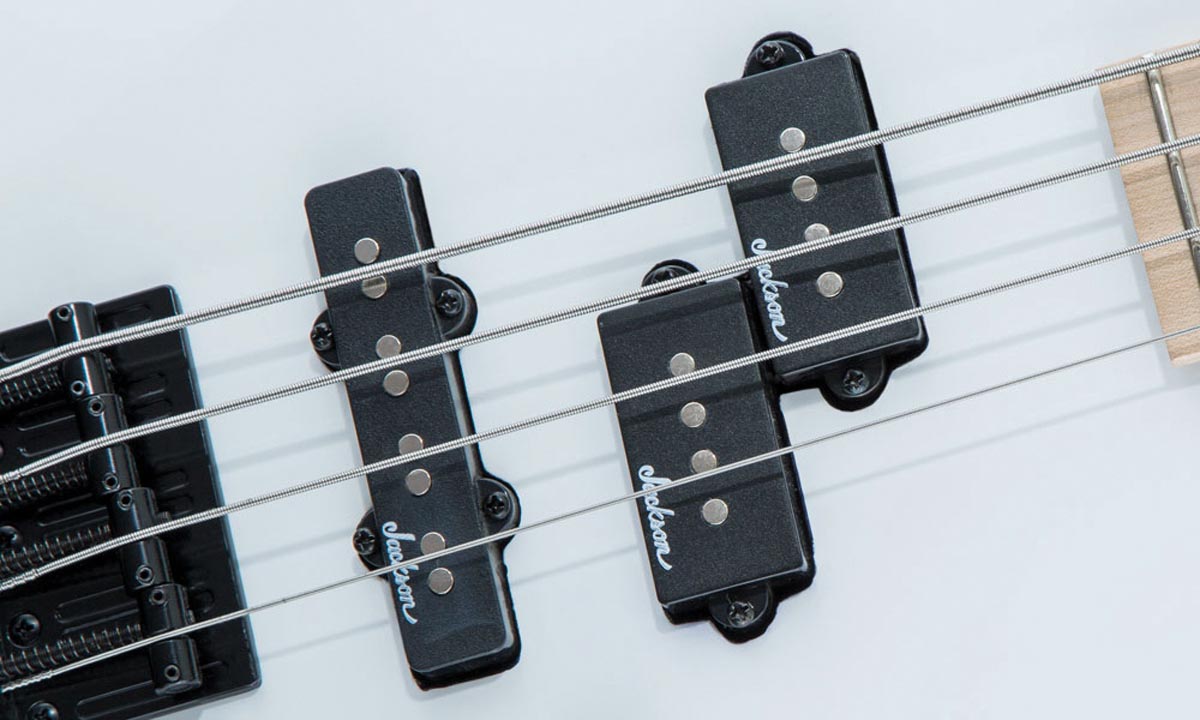

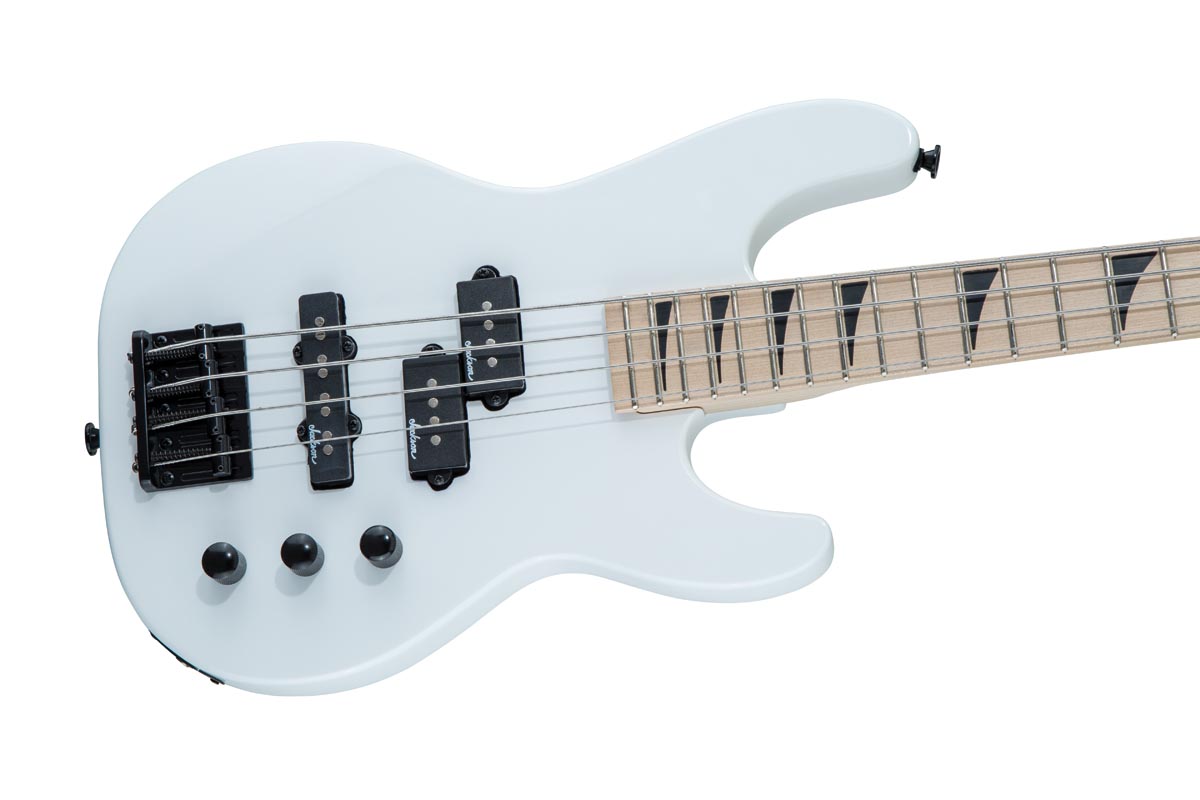
Sounds And Playability
...That weapon is its neck. At this price, essentially the equivalent of a couple of tyres for your band van, the Squier has no right to possess a neck as playable as this one. Smooth and welcoming but not so frictionless that you can’t do your job, it’s the nicest chunk of maple we’ve come up against at this price point for some time.
This is useful, because – as with the Jackson – the scale is five inches and counting shorter than the full-scale bass you normally play, so accurate finger placement above, say, the sixth fret requires some attention.
A slick neck like this one helps you to get that right, although you’ll need to take care until you’ve played for a couple of hours and you’re at home with these petite scale dimensions.
In every other way, the Squier feels adequate rather than astounding, but complaining about that fact would be inappropriate because the thing is so damn cheap. The tones don’t compare with those of a full-sized P-Bass, but they’re not feeble by any means.
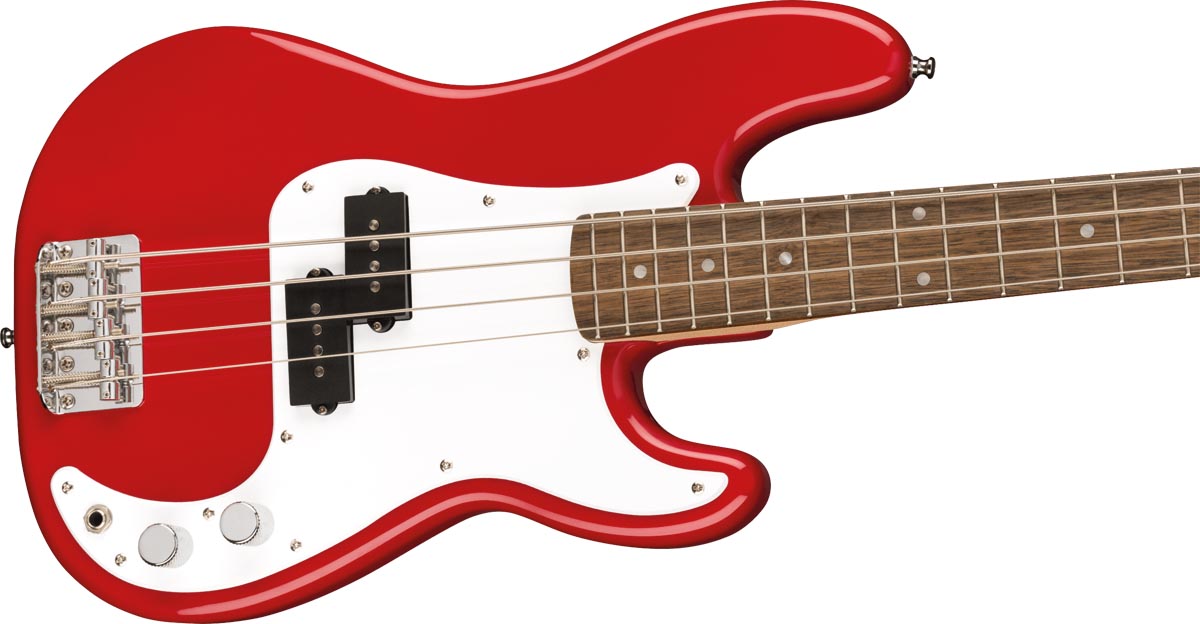
There’s a certain amount of bottom end and a rather lesser dose of top, but that’s nothing that a decent preamp won’t fix – and you wouldn’t choose this bass if extreme tones were what you were looking for, anyway. The Mini P is an acceptable instrument with a better-than-average neck and a trifling pricetag – it does the job that it’s designed to do. The Jackson is significantly better, thanks to its extra pickup.
That 1.5” nut width will require some care when you’re playing, but after a session or two you’ll feel at home with it. The Concert series has always been a shredder-friendly bass anyway, and the neck profile is just as forgiving when reduced down to the Minion’s size.
There’s a fairly big low-end response, and while the mids and top end can hardly compete with the thunder and crackle of the full-sized active version, no-one expects that they should. Try slapping and tapping, just for fun – with this scale size, you’ll need pro levels of accuracy.
Conclusion
Go small with our full recommendations. Save money, save aggravation at the airport, and save the world’s rainforests while you’re at it, but bear in mind that these small instruments require a slightly different mindset and an adapted technique.
You may even find that your full-sized basses feel a bit cumbersome when you go back to them. Food for thought, right?
Specs
Squier Mini Precision Bass
- PRICE: $189 / £149
- MADE IN: Indonesia
- BODY: Poplar
- NECK: Maple, 28.6” scale
- NECK JOINT: Bolt-on
- FINGERBOARD: Indian Laurel, 20 frets
- PICKUPS: Split Single-Coil Precision
- CONTROLS: Volume, tone
- HARDWARE: Squier tuners and bridge
- WEIGHT: 8.35 lbs
- CASE/GIG-BAG INCLUDED: No
- LEFT-HANDED OPTION: No
- CONTACT: Fender
Jackson Minion Concert Bass JS1X
- PRICE: $189 / £169
- BODY: Poplar
- NECK: Maple, 28.6” scale
- NECK JOINT: Bolt-on
- FINGERBOARD: Amaranth, 22 frets
- PICKUPS: Jackson P-style neck, J-style bridge
- CONTROLS: Volume, volume, tone
- HARDWARE: Nickel-chrome hardware, Jackson tuners and bridge
- WEIGHT: 6.2 lbs
- CASE/GIG-BAG INCLUDED: No
- LEFT-HANDED OPTION: No
- CONTACT: Jackson
Joel McIver was the Editor of Bass Player magazine from 2018 to 2022, having spent six years before that editing Bass Guitar magazine. A journalist with 25 years' experience in the music field, he's also the author of 35 books, a couple of bestsellers among them. He regularly appears on podcasts, radio and TV.
“Affordable versions of the three best basses I've ever held in my hands”: Sterling by Music Man completes its trilogy of Joe Dart signature models with a trio of made-to-order basses that cost less than $500
“The ace up the sleeve of bass players around the globe since 1978”: Tobias instruments were trailblazers in the bass world. Now they’re back as part of the Gibson family
